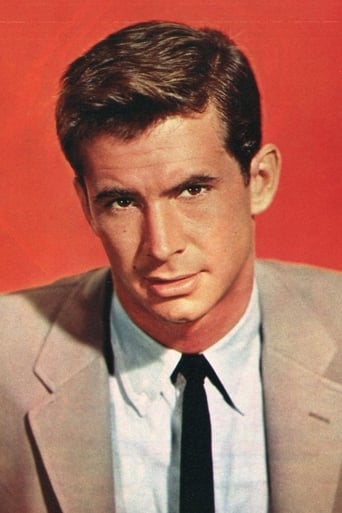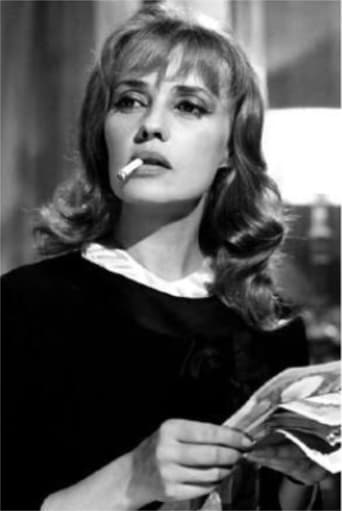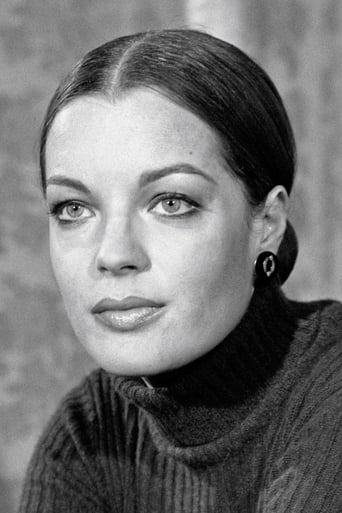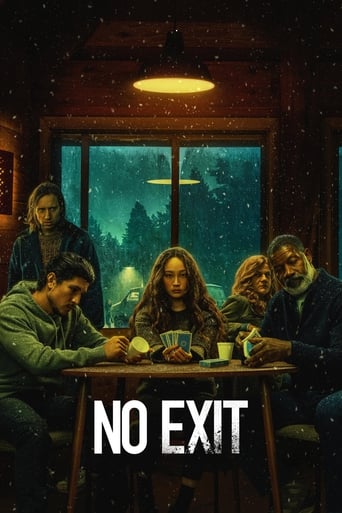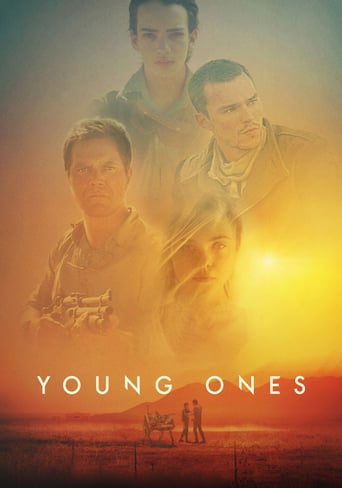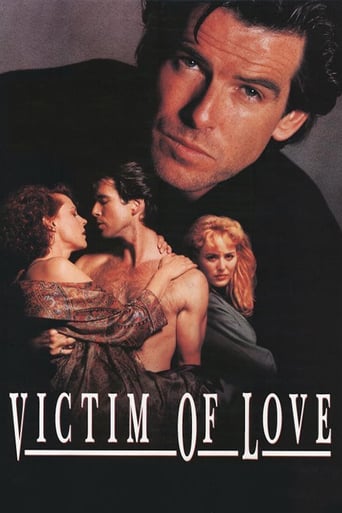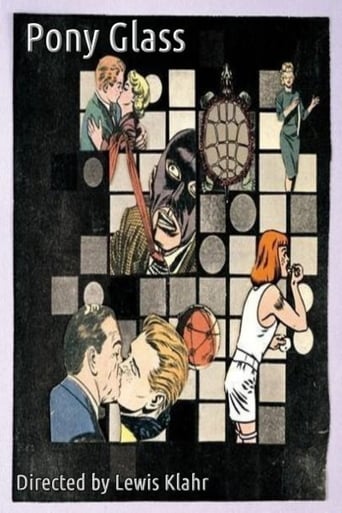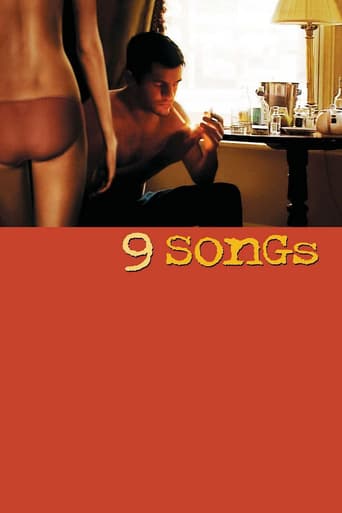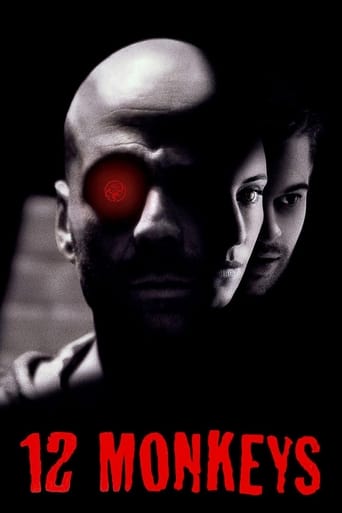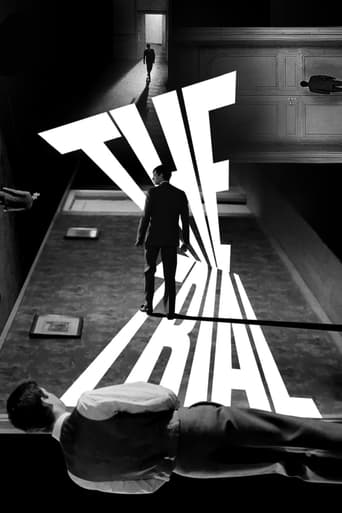
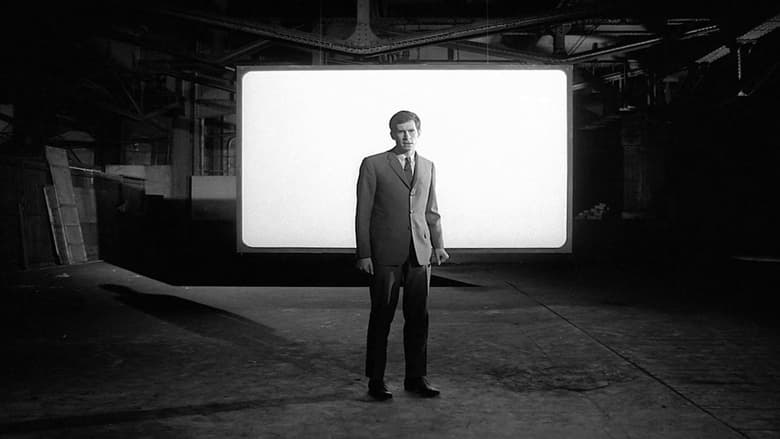
The Trial (1963)
Josef K wakes up in the morning and finds the police in his room. They tell him that he is on trial but nobody tells him what he is accused of. In order to find out about the reason for this accusation and to protest his innocence, he tries to look behind the façade of the judicial system. But since this remains fruitless, there seems to be no chance for him to escape from this nightmare.
Watch Trailer
Cast


Similar titles
Reviews
When I first read Franz Kafka book "The Process" I had doubts that someone would ever had courage to try and transport such a complex and almost abstract writing to cinema. Latter I found out that a movie based on this book had been made by Orson Wells in 1962. And he did it masterfully in a "dystopian noir" sort of a way. The Kafkaesque philosophy, was not only present but utterly celebrated. In the first few minutes of this movie I had serious doubts that Anthony Perkins was the right choice to play Joseph K. due to what appeared to be some overacting. As the film evolved he incontestably convinced me he was the character. Good performances by Romy Schneider as Leni and Akim Tamiroff as Bloch. Last but not least, the brilliant contributions by Orson Wells, as the director, writer, narrator and actor playing the Advocate Albert Hastler.
Contains Some Spoilers! Reading Kafka's The Trial was very useful in after watching Welles's adaptation in that I was able to spot out various little changes to the plot. Most are minor but Welles manages to fit what happens in weeks in the book to over a single day in the film. I did feel as if some parts were a bit rushed but I guess Welles was trying to cut production-time and get the film in by a certain date. He also even plays the role of the Lawyer Huld, which was something I didn't realize till he confronts K in the scene in the chapel with the projection slide. If you're a fan of the book this film is very very visually striking and the acting by Perkins and Schineider is flawless. It lives up to the film in many ways but the only negative aspects were that the book captures the atmosphere better and more fluid.
Alas, poor "Citizen Kane". There's no doubt that it is a glorious achievement, but every critic likes to say "it's not Welles' best." Ebert says his best is "Chimes at Midnight", Bogdonovich says "Othello". And if it's not obvious from my title, I say it's "The Trial"."The Trial" is certainly one of the most powerful films I've seen in my life, definitely one of the most artistic, and without a doubt a perfect 10 in my mind. As a longtime fan of Kafka's nightmarish yet entertaining dark satires, I have to say no one has ever captured the spirit of a writer nor the heart of a novel as well as this.Kafka's book is a thick satire of not just human justice but also intrinsic human nature: in particular, humanity's ridiculous capacity to surround itself with bureaucracies, hypocrisies and self-serving hierarchies in order to undermine simple truth. And how else would you depict something so painfully ridiculous? Through absurdity. What makes it fun is Kafka's oblique humor and dreamlike presentation, and Orson Welles was just the person to bring it to the big screen. Both the book and the movie are like a twisted "Alice in Wonderland", or maybe as Welles said, it has a deliberate flavor of Grimm.That's not to say it's oppressive to the viewer. On the contrary, the sets are enormous and airy, the approach is calm, almost serene, and some of the witty banter had me laughing out loud as if the script were straight out of "Spinal Tap". Indeed, Nigel's "these go to 11" scene would've fit perfectly alongside the inspector's "Ovular isn't a word" routine here. All of this grandeur, absurdity and irony is carefully designed to convey to us, as Thoreau once said, "Most men lead lives of quiet desperation."Also, if you notice this sort of thing, we have Orson Welles' signature long camera takes which move gracefully from set to set, speaker to speaker, creating a haunting feeling as if we the observers are invisible ghosts in the drama, experiencing everything in real time. The rhythm of the actors as well as the changing sets flows magically. I can't imagine how much choreography went into each scene, not to mention expert timing by all the actors, lighting and camera operators.The soundtrack, consisting mostly of Albinoni's Adagio in G minor (a sadly overlooked classical piece, used in "Rollerball" and an episode of "Space:1999") creates a mood that is both depressing and beautiful. Occasionally the music cuts to some frenzied jazz riffs, and sometimes we get pure silence, showing how Welles not only had the eye of a great visual artist and director, he also had the ear of a very capable musician.Anthony Perkins never got the credit he deserved for portraying the protagonist Josef K. In an interview, Welles blames himself for Perkins' reception, saying he told Perkins to play the role in a complex & unpopular way. Welles believed that Kafka didn't intend Josef K to be a plain "Everyman" such as whom we'd immediately sympathize with, but rather, Josef K is, himself, a corporate ladder-climber who exhibits the same absurd & neurotic tendencies as the human machine he is up against. I happen to agree with Welles' interpretation, and I think Perkins did a fantastic job of acting the part. Just keep that in mind if you start to think Perkins portrayal is bizarre: it's all part of the story.I could go on for ages about the lighting, cinematography and direction, but I'll summarize in one word: phantasmagoric. To spare you a trip to the dictionary like I have to make whenever I see that word, I'll give you Webster's definition: "1. having a fantastic or deceptive appearance, as something in a dream or created by the imagination" but in particular: "2. having the appearance of an optical illusion" and "3. changing or shifting, as a scene made up of many elements." Through the use of large sets and props with exaggerated proportions, and through the use of deep camera shots showing uniform patterns extending into the distance, Welles creates that unnatural, illusory scene which is both infinite and suffocating at the same time. Long camera shots pass through varied locations and incompatible architecture, not to mention frequent use of Welles' trademark mirrors (as he jokes, the primary tool of any magician), reaffirming the feel of a grand illusion throughout the entire film. And that is the point of the film as well as the book: that human society has built for itself a grand illusion that is perpetuated by the powers that be.As much as I'm floored by Welles' achievement, I can't recommend this film to everyone. It is for people who have a cynical take on humanity, not for people who want a bright, Ron- Howard-esque experience. After seeing this film I realize how much it has influenced filmmakers like Terry Gilliam ("Brazil"), Mike Nichols ("Catch-22"), Jeunet/Caro ("City of Lost Children") and even Kubrick ("2001: A Space Odyssey") and the countless filmmakers they in turn have influenced. If you're a fan of any of those filmmakers & films, you absolutely must see "The Trial".
The Trial is a psychological drama that deals with a state of mind we all experience at some time...fear. In this movie, we sense a Cold War atmosphere where anonymous and uncaring people threaten one man's freedom, dignity, happiness or even his life. Police officers invade the room of one citizen, played by Anthony Perkins, and charge him with an unknown crime. Later, he walks into a large chamber where he is face to face with what looks like the tyranny of mob rule. Director Orson Welles (who also acts in the movie) was not one to shy away from new ideas and this film takes the viewer through a sequence of settings that we might experience as a nightmare: shadows, strange voices and faces, creaking noises, and dark, empty spaces. What I felt watching this movie were the traumas when the terror fear becomes reality, as when thugs are given power to arrest people through trumped-up charges. Lives are turned upside down at a moment's notice. Fear of the authorities, the police, and others in positions of power is universal. All of us fear the heavy hand of authority, even if we don't experience it as a daily occurrence. Alfred Hitchcock talked about his fear of the police, and he explored one actual incident in a documentary/drama called The Wrong Man. The romantic scenes added some relief to the brooding atmosphere. Romy Schneider was particularly good and very beautiful. The movie is abstract and is meant to convey terror but does not tell us what the story is. I tried unsuccessfully to try to understand the plot because the sequence is rather disjointed. I think Welles wants the viewer to feel the overwhelming terror with only the broad outline of a story. In this he succeeds very well but the viewer may come away feeling confusion as well as terror.


